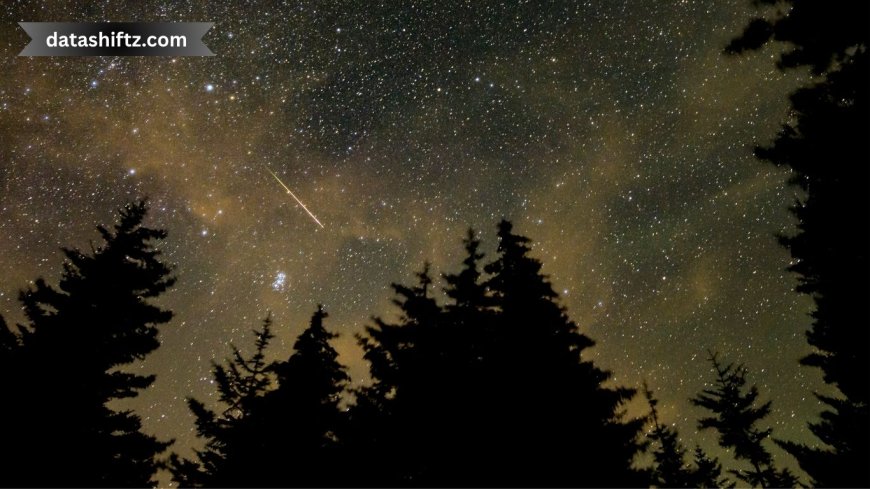Meteor Showers Lighting Up the Sky

An Astronomical Spectacle Lighting Up the Skies
Meteor showers have fascinated humanity for centuries. These celestial events, where dozens or even hundreds of meteors streak across the sky per hour, are a favorite for astronomers, stargazers, and curious onlookers alike. Today, meteor showers continue to captivate people around the globe, and 2025 is shaping up to be a particularly exciting year for skywatchers.
This blog provides a detailed update on today's meteor shower activity, what to expect, and how to make the most of your stargazing experience.
Understanding Meteor Showers
Meteor showers occur when Earth passes through a trail of debris left by a comet or asteroid. These fragments, often no larger than grains of sand, enter Earth’s atmosphere at high speeds and burn up, creating the brilliant streaks we see in the night sky.
Each meteor shower is typically named after the constellation from which the meteors appear to originate, known as the “radiant.”
Today's Meteor Shower Activity
Highlights for July 29, 2025
As of today, July 29, 2025, two meteor showers are active in the sky:
-
Delta Aquariids
-
Alpha Capricornids
The table below summarizes the essential details of these showers.
| Meteor Shower | Peak Date | Average Rate (meteors/hour) | Best Viewing Time | Visibility Conditions |
|---|---|---|---|---|
| Delta Aquariids | July 28–30 | 20–25 | 2 AM – 4 AM | Good (clear skies) |
| Alpha Capricornids | July 29–August 1 | 5–10 | 11 PM – 1 AM | Moderate (partly cloudy) |
Skywatching Tip:
The moon is currently in its waning crescent phase, which means it produces minimal light pollution, creating ideal conditions for meteor spotting.
Where and How to Watch Tonight's Showers
Best Viewing Locations
-
Rural areas with minimal light pollution
-
Elevated spots like hills or open fields
-
National parks and dark-sky reserves
What to Bring
Here’s a quick checklist for a successful meteor viewing experience:
-
Blanket or reclining chair
-
Warm clothing (especially for early morning viewing)
-
Thermos with a hot beverage
-
Star chart or stargazing app
-
Bug repellent
-
Binoculars (optional, though not necessary for meteor showers)
Upcoming Meteor Showers in 2025
If you're planning ahead, here’s a list of notable meteor showers still to come this year:
-
Perseids – August 11–13 (One of the most active, up to 100 meteors/hour)
-
Draconids – October 8–9
-
Orionids – October 21–22
-
Leonids – November 17–18
-
Geminids – December 13–14 (Often considered the best meteor shower of the year)
-
Ursids – December 21–22
What Makes Today’s Showers Special?
Delta Aquariids: The Silent Performer
The Delta Aquariids are not as dramatic as the Perseids or Geminids, but they offer a steady stream of meteors. With peak rates of about 25 meteors per hour under ideal conditions, these meteors are known for their faint but long-lasting trails.
This shower is best observed in the Southern Hemisphere, but Northern Hemisphere observers can also catch some of the action, especially in tropical and subtropical regions.
Alpha Capricornids: Bright and Slow
Though the Alpha Capricornids produce fewer meteors—typically around 5 to 10 per hour—they are known for their bright fireballs. These meteors are slower and can be particularly striking due to their brilliance and long trails.
Even casual stargazers can enjoy this shower without needing any special equipment.
Frequently Asked Questions
How can I tell if I'm seeing a meteor or a satellite?
Meteors move fast and usually last only a few seconds. Satellites move slowly and steadily across the sky and don’t streak or flash.
Can I photograph a meteor shower?
Yes, with a DSLR camera, a tripod, and long-exposure settings (typically 20–30 seconds), you can capture meteors against the night sky. Make sure to include part of the landscape for a dramatic effect.
Do meteor showers cause any danger to Earth?
No. The meteors burn up high in the atmosphere, far above the Earth’s surface, posing no threat.
Final Thoughts
Tonight is a fantastic opportunity to step outside, disconnect from screens, and reconnect with the cosmos. Whether you're a seasoned astronomer or simply someone who enjoys the beauty of the night sky, the Delta Aquariids and Alpha Capricornids offer a chance to witness one of nature’s most mesmerizing phenomena.
Take a few minutes—or a few hours—to lie back and enjoy the silent, graceful streaks above. Meteor showers remind us of how dynamic and interconnected our solar system truly is.





























